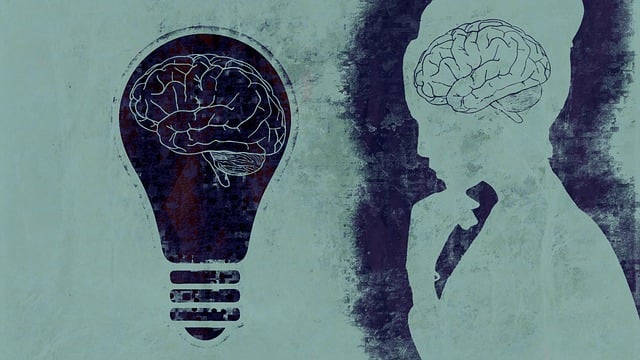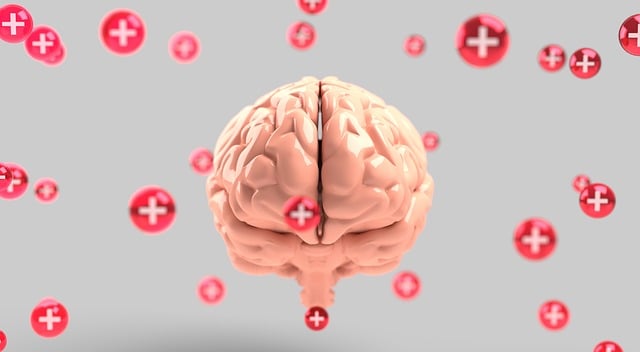Burnout among healthcare providers, particularly "Golden First Responders," is a growing concern driven by high workloads and emotional demands. Early recognition and mental health support are vital. Strategies like Golden First Responders Therapy offer tailored trauma support, enhancing resilience and healthcare service quality. Self-care practices, peer networks, mentorship, and open communication reduce stress and burnout risk. Implementing these measures strengthens the healthcare system's ability to serve patients during crises while empowering dedicated professionals.
Healthcare provider burnout is a growing concern, impacting not just individuals but the entire healthcare system. This article explores comprehensive strategies to prevent burnout among these essential workers. We delve into the root causes, with a focus on self-care practices, innovative therapies like Golden First Responders Therapy, and organizational changes needed to foster resilience. By implementing support systems and enhancing communication, healthcare facilities can create environments that prioritize staff well-being, ultimately improving patient care.
- Understanding Burnout Among Healthcare Providers
- The Role of Self-Care in Preventing Burnout
- Golden First Responders Therapy: A Novel Approach
- Building Resilient Workplaces for Healthcare Staff
- Implementing Support Systems and Effective Communication
Understanding Burnout Among Healthcare Providers

Burnout among healthcare providers is a growing concern, often manifesting as emotional exhaustion, depersonalization, and reduced personal accomplishment. These symptoms can arise from high workload, long hours, and intense emotional demands inherent in the profession. Often, healthcare workers, affectionately known as the Golden First Responders, bear the brunt of stress due to their critical role in saving lives and providing care during emergencies and traumatic events. This continuous exposure to high-stress situations, coupled with complex patient interactions and administrative tasks, can lead to a range of mental health issues if left unaddressed.
Recognizing burnout early is crucial, as it can impede the delivery of quality healthcare services. The importance of mental health awareness cannot be overstated here, particularly in light of the Mental Health Policy Analysis and Advocacy that advocates for better support systems. Strategies such as Golden First Responders Therapy focus on providing tailored trauma support services to address the unique challenges faced by these professionals. By prioritizing their well-being, we not only enhance individual resilience but also ensure a more robust healthcare system capable of meeting the needs of patients in times of crisis.
The Role of Self-Care in Preventing Burnout

Self-care is an essential component of burnout prevention strategies for healthcare providers, often referred to as the “golden first responders.” Constant exposure to stress and trauma can take a significant toll on mental and physical well-being, making dedicated self-care practices crucial. This includes prioritizing adequate sleep, engaging in regular exercise, maintaining a balanced diet, and setting clear boundaries between work and personal life.
Beyond these foundational practices, integrating therapeutic techniques like Golden First Responders Therapy can be immensely beneficial. This approach focuses on equipping healthcare professionals with effective conflict resolution techniques and coping mechanisms to manage the inherent challenges of their roles. Public awareness campaigns development around burnout prevention can also foster a supportive environment, encouraging open discussions about stress management and mental health within the medical community.
Golden First Responders Therapy: A Novel Approach

In recent years, a novel approach to healthcare provider burnout prevention has emerged: Golden First Responders Therapy. This innovative treatment recognizes and addresses the unique challenges faced by medical professionals, particularly those on the frontlines. By focusing on mental wellness and inner strength development, this therapy offers a comprehensive strategy to combat stress and depression prevention.
Golden First Responders Therapy goes beyond traditional treatments by tailoring interventions to the specific needs of healthcare providers. It emphasizes creating safe spaces for them to process their experiences, build resilience, and cultivate coping mechanisms that enhance their ability to care for others. This approach not only helps in burnout prevention but also fosters a sense of community among these essential workers, empowering them with the tools needed to navigate the demanding landscape of modern healthcare.
Building Resilient Workplaces for Healthcare Staff

In the fast-paced and emotionally demanding healthcare sector, building resilient workplaces is paramount to prevent staff burnout. This involves implementing strategies that support the mental and emotional well-being of healthcare providers, who are often dubbed the “Golden First Responders” due to their critical roles in patient care. One effective approach is integrating Golden First Responder Therapy, which offers specialized support tailored to address the unique challenges faced by these professionals. Such therapy can facilitate stress management, resilience building, and coping mechanisms, thereby enhancing mood management and reducing the risk of mental illness.
Additionally, instituting Mental Illness Stigma Reduction Efforts within healthcare organizations plays a crucial role in fostering an inclusive environment. By promoting open conversations about mental health, encouraging peer support networks, and providing resources for Emotional Well-being Promotion Techniques, institutions can significantly lower the barriers that prevent staff from seeking help. These collective efforts contribute to a healthier, happier, and more dedicated workforce, ensuring optimal patient care and workplace sustainability.
Implementing Support Systems and Effective Communication

Healthcare providers, often referred to as the “Golden First Responders,” face unique challenges that can lead to burnout if left unaddressed. Implementing robust support systems is a cornerstone in preventing professional exhaustion. This includes access to peer support networks, where colleagues can connect, share experiences, and offer guidance. Many organizations are recognizing the value of dedicated mentorship programs, fostering an environment where seasoned professionals can provide valuable advice and emotional support to their peers. Additionally, integrating Mental Wellness Journaling Exercise Guidance can serve as a powerful tool for self-care; it encourages providers to reflect on their experiences, process emotions, and practice mindfulness, all of which contribute to enhanced resilience.
Effective communication is another vital aspect. Encouraging open dialogue between healthcare workers and patients, especially when incorporating Cultural Sensitivity in Mental Healthcare Practice, can reduce stress and improve job satisfaction. When providers feel heard and valued, it strengthens their commitment to patient care. Moreover, regular feedback sessions and transparent communication channels with administrative support can help identify issues early on. This proactive approach allows for the implementation of tailored resilience-building strategies, ensuring that these dedicated professionals remain empowered and engaged in their work.
Healthcare provider burnout is a growing concern, but by understanding its causes and implementing effective strategies, we can create more resilient work environments. Incorporating self-care practices, exploring innovative therapies like Golden First Responders Therapy, building supportive workplaces, and fostering open communication are key to preventing burnout. These measures not only benefit individual healthcare providers but also enhance patient care and organizational success in the long term.














